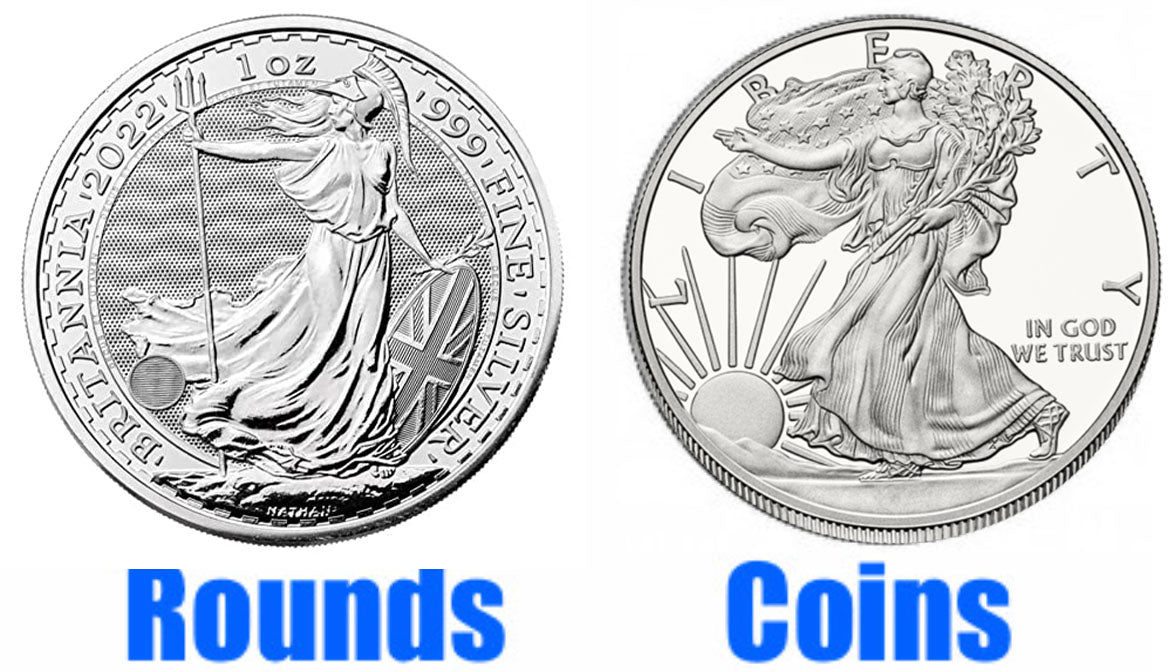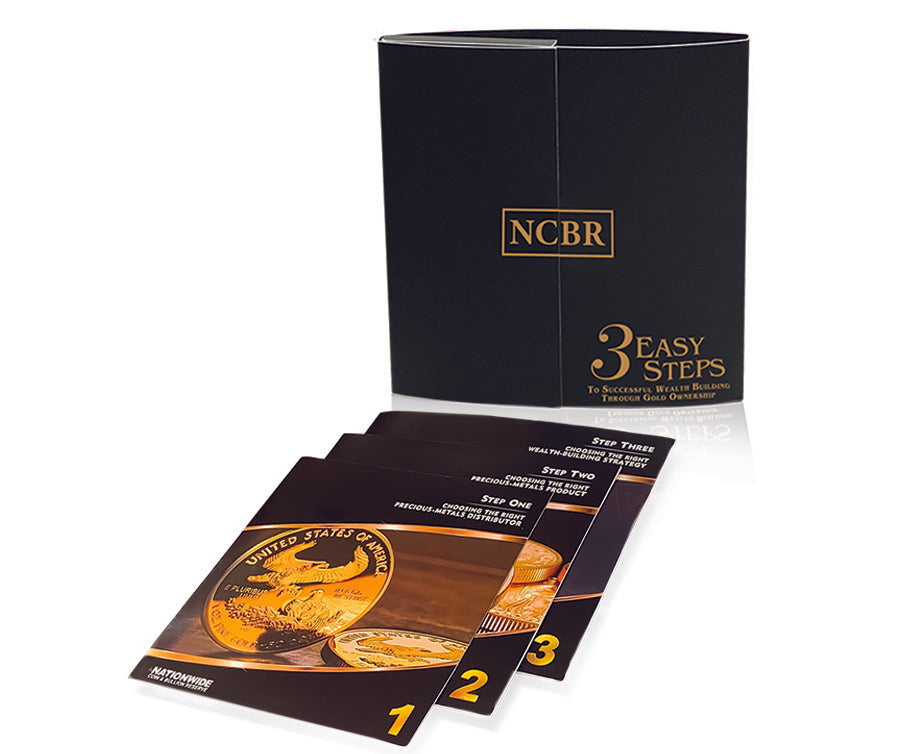If you’re looking to diversify your portfolio, investing in gold is a great option. As you begin your research, you might notice that you have the option to invest in gold stocks or physical gold (bullion). These portfolio options might seem similar, but they’re actually drastically different and each have their own benefits and drawbacks.
GOLD STOCKS VS PHYSICAL GOLD
Gold stocks function like other stocks; essentially you’re investing in companies who mine or own gold on your behalf. Physical gold is a more stable investment that you yourself own and store in an IRA-certified account.
However, there’s a lot more that goes into whether you should invest in physical gold or gold stocks. Your investment goals and starting capital will impact which investment you choose.
Let’s dig into the intricacies of the differences between gold stocks and physical gold.
GOLD STOCKS
Also known as paper gold, gold stocks are similar in function to any other stock you would buy—you’re investing in a company on the hope that they’ll succeed and your investment will compound. With gold stocks, you’re investing in a company that specifically has ties to gold, so theoretically your investment should mimic the price of gold, not necessarily the stock market. So when the stock market crashes, your gold stock investment should be safer.
TYPES OF GOLD STOCKS
GOLD ETFS
If you invest in a gold exchange-traded fund, you won’t actually own any physical gold. Instead, you’ll be investing in assets that are backed by gold. If you don’t want to mess with a precious metals IRA that requires storing physical gold, a gold ETF is a great option that generally mimics the price of gold.
GOLD MINING STOCKS
Gold mining stocks are another option if you don’t want to have physical gold. These stocks are investing in companies that mine gold, so they often follow the price of gold. However, these stocks are also subject to fluctuations in the business itself—when it’s poorly managed, the country is in turmoil, the mining isn’t successful, or the workers go on strike, your investment could suffer.
GOLD CERTIFICATES
Gold certificates aren’t technically stocks, but they represent an investment in gold that doesn’t include holding physical gold. Essentially, you receive a piece of paper that indicates you “own” a specified amount of gold that is not in your possession.
Gold certificates are less popular today because the US dollar is no longer backed by gold, although some places still distribute them. Keep in mind that if the company associated with your certificate goes bankrupt, your certificate will be worthless.
PROS
EASILY LIQUIDATED
Because these investments function like traditional stocks, they can easily be sold if need be. You don’t need to wait to withdraw it from your precious metals IRA and worry about selling it—you can just trade the fund.
DON’T NEED TO STORE IT
When you own physical gold, you need to have a place to safely store it. In order for it to be recognized, it has to be in a precious metals IRA that must be managed by a custodian. With gold stocks, you just hold the investment like you would any other stock—in your portfolio.
DON’T NEED TO INSURE IT
Because physical gold is a commodity, you need to insure it since it can be physically stolen from your possession. Investing in gold stocks bypasses that risk, because buying insurance for stock is not particularly common.
CONS
YOU DON’T ACTUALLY OWN ANY GOLD
Your gold stock investment is in a company, not a commodity. In the event of an economic crisis, you won’t have a safeguard of physical gold to use as currency. If the stock market crashes, your investment won’t be safeguarded because you technically don’t own any gold.
HIGHER RISK INVESTMENT
Gold stocks present a higher risk because they are dependent on more than just the price of gold—because you’re technically investing in a company and not gold, your investment is affected by the success of the company, not gold. If the workers strike, the company is poorly managed, or the mine doesn’t produce gold, then your investment is at risk.
MORE AFFECTED BY STOCK MARKET
Physical gold often rises in value when the stock market is doing poorly, but the same is not true of gold stocks. Because it’s tied to the stock market and individual companies, it’s a less predictable and less stable investment in gold.
PHYSICAL GOLD
When you invest in physical gold, also known as bullion, you actually own gold in the form of bars or coins. These bars and coins must be approved by the IRS in order to be put into a gold IRA.
TYPES OF PHYSICAL GOLD
GOLD BARS
There are two main types of gold bars—cast and minted. Cast gold bars are created in a mold, while minted gold bars are poured into a long strip of metal and then cut into bars. Cast bars tend to be rougher and less perfect, while minted bars are nearly perfectly shiny and smooth. Minted bars are also usually preserved in their original packaging, which maintains their appearance and value.
COINS
Gold coins are created by various mints around the world. These gold coins often have a face value—you could technically use the coin as currency—but oftentimes the value of the gold itself is worth more than the face value. In the US, gold coins minted before 1933 have historical value associated with them as well.
PROS
YOU DIRECTLY OWN IT
Unlike paper stocks, you actually own physical gold. There’s no middleman between you and your valuable investment, and your investment likely won’t fluctuate as much as an investment in the stock market. The gold you have in your possession will retain its inherent value as a commodity.
PRICE OFTEN GOES UP IN ECONOMIC DOWNTURNS
When stock market investments plummet or the economy is in a recession, the price of gold often increases, making gold a great complementary asset to your other investments. In addition, gold is a stable investment because it generally increases in the long term.
CAN BE USED IN ECONOMIC CRISIS
In the event of a stock market crash or apocalyptic event where paper currency becomes invaluable, gold can be used as currency to trade for items. And, because you have the physical gold in your possession, you can easily use it to trade for goods you need to survive.
CONS
HAVE TO USE A CUSTODIAN-MONITORED IRA
According to the IRS, it’s not legal to store your gold IRA in your home—you can’t just bury your gold in your backyard or safely lock it away in a safe. Therefore, you need to place it into a certified IRA and hire a custodian to monitor your account for it to be recognized by the IRS as legitimate. You’ll have to pay a fee to open your account, and then a yearly fee to store, insure, and monitor your gold.
CAN ONLY INVEST IN IRS APPROVED BULLION
When you buy gold to put into a precious metals IRA, it must be a coin or bar approved by the IRS. If you’re buying gold from a non-reputable dealer or a second-party site such as eBay, you must be careful to ensure your purchase will be accepted into your IRA before you purchase.
SO, SHOULD I INVEST IN GOLD STOCKS OR PHYSICAL GOLD?
Again, it all depends on your investment goals and starting capitals.
IF YOU ARE LOOKING FOR AN EASY ENTRY INVESTMENT THAT GENERALLY FOLLOWS THE PATH OF GOLD, GOLD STOCKS ARE A GREAT OPTION.
They add to your existing stock market investments but would follow in opposite trends of the stock market. If you’re not sure you’d like to keep your gold investment, this is the option for you, because you can easily liquidate your investment at nearly a moment’s notice.
PHYSICAL GOLD, ON THE OTHER HAND, IS A GREAT INVESTMENT IF YOU’RE LOOKING TO HAVE A SAFEGUARD IN THE EVENT OF AN ECONOMIC CRISIS WHERE PAPER CURRENCY BECOMES INVALUABLE.
In addition, physical gold is fun to collect! Searching out rare coins and near-perfect bars to add to your collection is a thrill many collectors love.
Whichever investment you decide to move forward with, your investment in gold is one that will complement your existing investments and help secure your future. Ask your broker about the gold stock options that are available to you. If you have any questions about investing in gold bullion, reach out to one of our certified gold experts today! They’ll gladly help you understand which physical bullion is best for your investment goals and aid you throughout the entire purchase process.
Real Time Precious Metals Data Below







